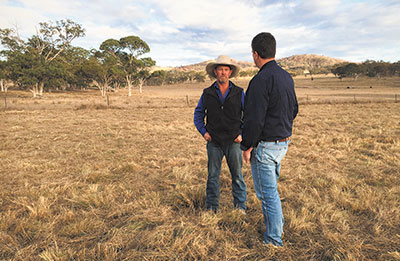Southern Downs Regional Council’s Pest Management team is proudly working with local sheep and wool producers to control wild dogs.
A $1.7 million grant to erect nearly 200 km of cluster fencing was secured through the State Government’s Queensland Feral Pest Initiative and the Federal Government’s Communities Combating Pests and Weed Impacts During Drought program.
A power in numbers approach to staving off wild dogs, cluster fencing involves a number of adjoining landowners forming a partnership to erect fencing around the outer boundary of a group of properties.
Council’s Acting Manager Environmental and Regulatory Services, Craig Magnussen, said cluster fencing would protect the sheep and wool industry into the future as well as provide economic benefits to the whole region.
“A thriving sheep and wool industry will increase employment for the region, as more sheep equals more labour in shearing and animal husbandry activities.
“More employment opportunities in the industry will bring more people into the Southern Downs and boost the local economy.”
Chair of the Southern Downs Region Wild Dog Management Group and local landowner, Clive Smith, said wild dogs had been a problem for the region’s producers for a long time.
“I’ve done the lot on my land—baiting, trapping, and shooting—and dogs will still find a way onto your property, because those things alone are not enough.
“I put up some exclusion fencing around parts of my property and noticed a difference in the amount of wild dogs coming onto my land. Even fencing part of your property will disturb their patterns.
“Most landholders running sheep want to put up exclusion fencing but it costs too much for them, and that’s why we need to work with our neighbours to put up cluster fencing.”
Despite the recent success, Council and their industry partners will continue working to secure funding for more cluster fencing and other control methods—like baiting and trapping—in the region.

















